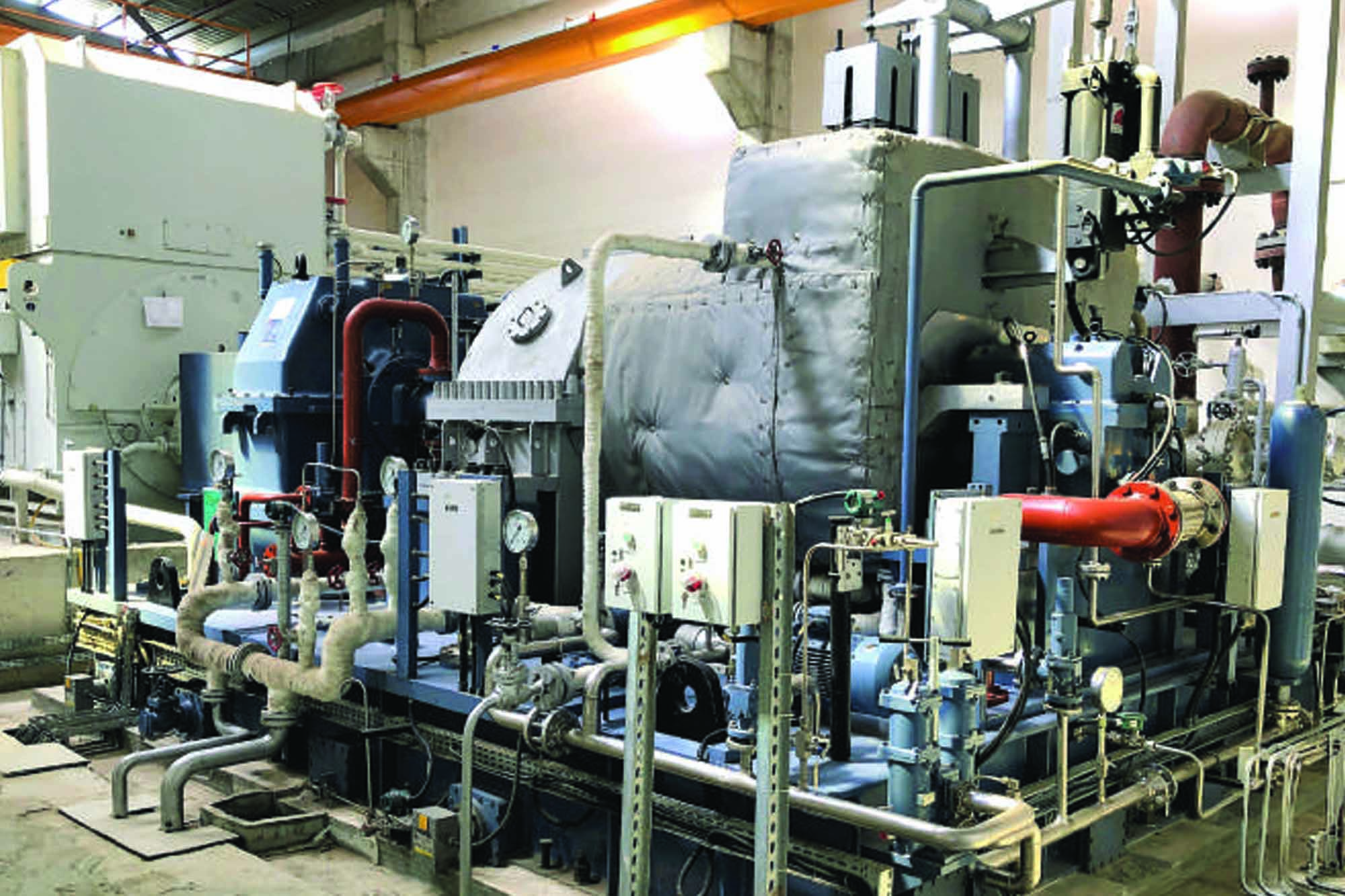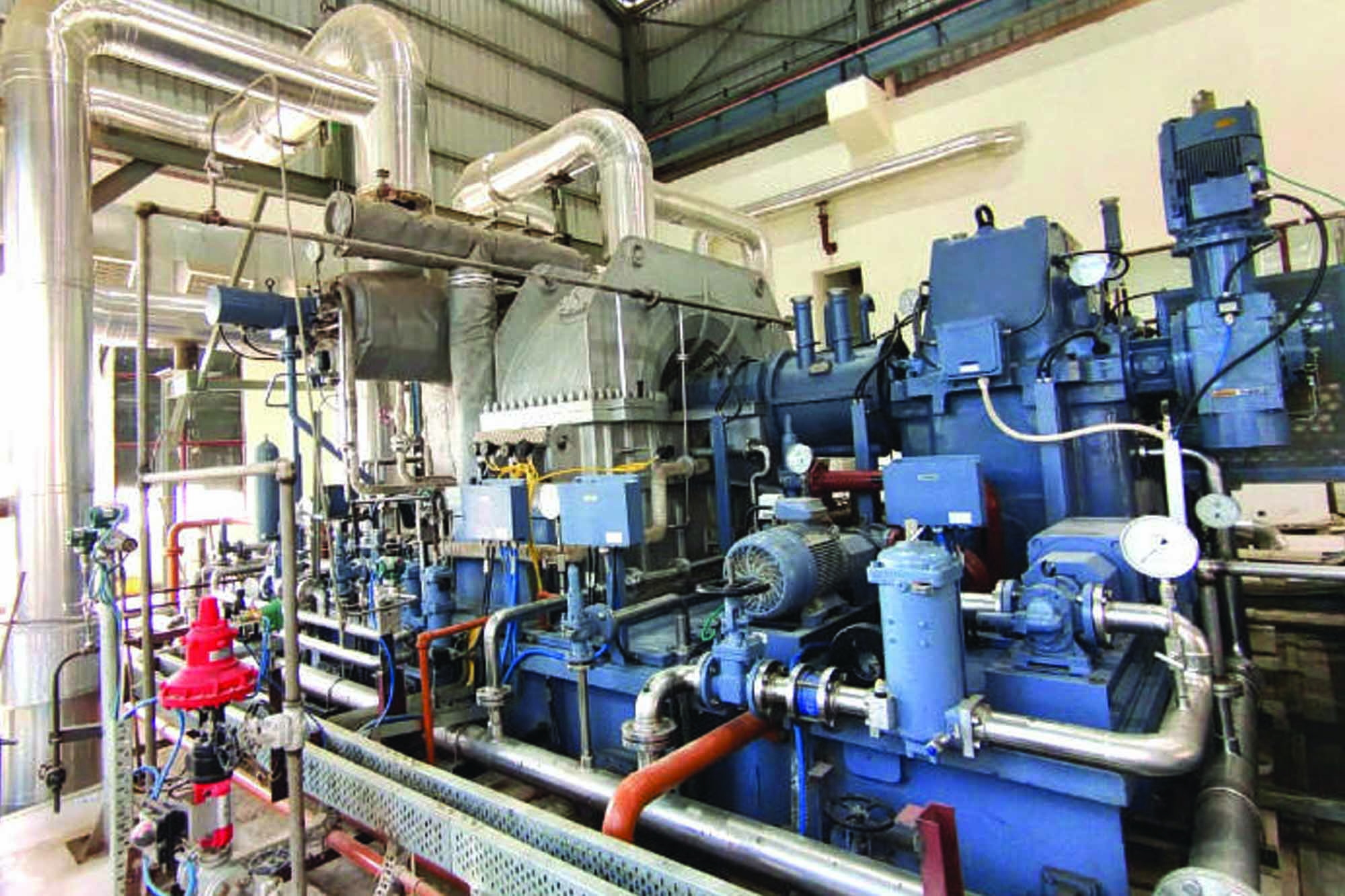Steam turbines fueling energy sustainability
By EPR Magazine Editorial May 9, 2024 4:30 pm IST
By EPR Magazine Editorial May 9, 2024 4:30 pm IST

From biomass to geothermal, the company is versatile in offering steam turbine solutions for diverse, sustainable heating and power applications.
Introduction:
The global power generation sector is experiencing a significant shift from traditional energy sources to renewable and sustainable options, triggering a massive transformation. India’s energy demands have surged considerably in recent years, driven by rapid economic expansion, industrial growth, and urban development. As a result, India’s demand for energy is escalating swiftly. India will likely account for 25% of global energy demand growth over the next two decades.
Reflecting global trends, the power generation sector in India has undergone notable changes in recent years. There has been a significant shift towards sustainable power initiatives and a heightened focus on addressing climate change concerns through eco-conscious policies. Thermal sources still dominate electricity generation in India, accounting for approximately 74% in FY23.
The Indian government has actively advocated for adopting renewable energy sources to mitigate the country’s carbon footprint and pursue sustainable development objectives. Encouragingly, the proportion of thermal energy in the energy mix has diminished due to a growing emphasis on renewables. The proportion of electricity generated from renewable sources rose to 26% in FY23.
Triveni Turbines, a global leader in the industrial steam turbine market, has been a key player in driving this transition towards renewable energy sources in industrial captive power generation.
The power of Triveni’s steam turbines
Triveni Turbines is a leading manufacturer of industrial steam turbines globally, particularly in the sub-100 MW range. The company has been instrumental in this transformational journey through our state-of-the-art steam turbine technology. Recognising the importance of renewable energy solutions, Triveni Turbines began developing and producing steam turbines to meet their customers’ sustainable power requirements.
One key area where Triveni Turbines has significantly impacted is biomass-based cogeneration plants. Harnessing the potential of biomass (both bagasse and non-bagasse fuels) enables Triveni Turbines to design, develop, and deliver a robust steam turbine solution for generating sustainable power while minimising environmental impact.

Navigating challenges with steam turbine generators
1. Driving efficiency in biomass-based cogeneration plants
A prominent client in the sugar industry faced the dual challenge of meeting increased power demands while adhering to stringent environmental regulations. Triveni Turbines provided them a higher-efficiency steam turbine solution to optimise their cogeneration plant’s performance. They offered a state-of-the-art 30 MWe back-pressure steam turbine with advanced reaction technology. The steam turbine was custom-engineered to handle large volumetric steam flows, ensuring maximum power output, improved performance, and energy savings to the customer.
Triveni’s modernised manufacturing facilities and global sourcing network enabled the timely delivery of the steam turbine, setting a new industry benchmark. By installing this steam turbine, the client substantially reduced carbon emissions and operational costs, enhancing its overall sustainability.
2. Waste heat recovery (WHR) in the steel industry
Triveni Turbines has offered captive power generation solutions to the steel industry for over three decades. More than 150 steam turbines have been installed worldwide, enabling customers in the sponge iron and steel industry to operate efficiently in terms of CAPEX and OPEX. With flexibility in operation, availability, and proven design capabilities, the steam turbine generators can generate maximum power output from 3 to 50 MW.
3. Waste heat recovery (WHR) in cement industry
Typical WHR systems rely on the waste heat from the NSP-Preheater (New Suspension Preheater) & air quenching clinker cooler (AQC), which are installed upstream & downstream of the rotary kiln, respectively. Current cement plants use a multi-stage cyclone preheater to preheat the raw material mix before reaching the kiln. As the number of preheating stages increases, the plant’s waste heat potential also decreases. Typical preheater exhaust temperatures range between 280oC to 450oC & typical AQC exhaust temperatures range from 250oC to 330oC. The Power generation typically ranges from 25kWh/t to 45kWh/t of clinker for WHR applications.Our steam turbines operate successfully in cement plants worldwide, generating power from waste heat; whether it is the brownfield or the greenfield cement plant architecture, Triveni has the expertise to propose steam turbine solutions to drive customer success.
This is a case example of a 22 MW steam turbine installed in India. The steam turbine generator has been operating reliably since August 2020 and has allowed the major cement player to operate at full capacity (7 million tons per annum), thereby reducing dependence on the grid for power and improving plant returns and efficiency.
4. Triveni’s supercritical carbon dioxide (sCO2) turbine technology for the cement industry
Triveni Turbines is commercialising sCO2 technology & can provide cement plant owners with sCO2 turbine solutions meeting their specific plant conditions.
The next frontier in efficient and compact turbine technology is the adoption of sCO2 for closed-loop Brayton cycle—sCO2 turbines. These turbines derive their compactness for the same MW due to the density of the fluid (supercritical CO2) adopted and its thermophysical properties at moderate temperature and pressure.
Research programmes aimed at reducing emissions in the cement industry, whether through raw material innovations, the adoption of more preheaters for flue gas heat absorption, novel carbon capture techniques, or electrification, have the scope to reduce WHR potential at the plant level in the future.
The current scale of WHR installations extends to 20-25MW, based on cement plant production capacity & equipment (preheaters & coolers) employed. However, if the scale of WHR installations is in the sub-10MW range, as may be the case for cement manufacturers with smaller capacities, sCO2 turbine installations are deemed practical, as the technology is currently in the commercial demonstration phase.
5. Retrofitting for enhanced performance and flexibility
An industrial cogeneration plant operating an ageing 8 MW European OEM turbine faced inefficiencies due to changing power requirements. The client wanted a solution to enhance turbine performance and ensure flexibility in power generation. Triveni Turbines proposed a comprehensive retrofitting solution by leveraging its turbine design and engineering expertise. The existing turbine internals were upgraded to incorporate high-efficiency blades, diaphragms, bearings, and gear internals, aligning them with current operational needs.
As a result, the retrofitting initiative led to a remarkable enhancement in turbine performance and enabled the client to achieve a power output of 9 MW with reduced specific steam consumption. By retaining the existing turbine housing and civil foundation, Triveni Turbines minimised project costs and downtime and ensured the client a swift return on investment. With increased operational flexibility and efficiency, the client gained a competitive edge in the market while reducing its environmental footprint.
Leading the way with sustainability
Triveni Turbines provides its customers with a complete power plant solution and optimal design efficiency. Each steam turbine is engineered as per order and customised based on the customer’s requirement to match the plant load, boiler load, and future power-to-steam ratio requirements. The company offers complete turnkey solutions for turbo-generator operations, including the supply of steam turbines, steam piping, firefighting systems, and cabling.
From biomass to geothermal, the company is versatile in offering steam turbine solutions for diverse, sustainable heating and power applications. Triveni Turbines exemplifies how a relentless pursuit of excellence, innovative technology, and global expansion can drive sustainable energy solutions. Thanks to its unwavering commitment, Triveni Turbines remains a beacon of progress as the world transitions towards cleaner energy sources.
Authored by: Arun Mote, Executive director, Triveni Turbines
We use cookies to personalize your experience. By continuing to visit this website you agree to our Terms & Conditions, Privacy Policy and Cookie Policy.